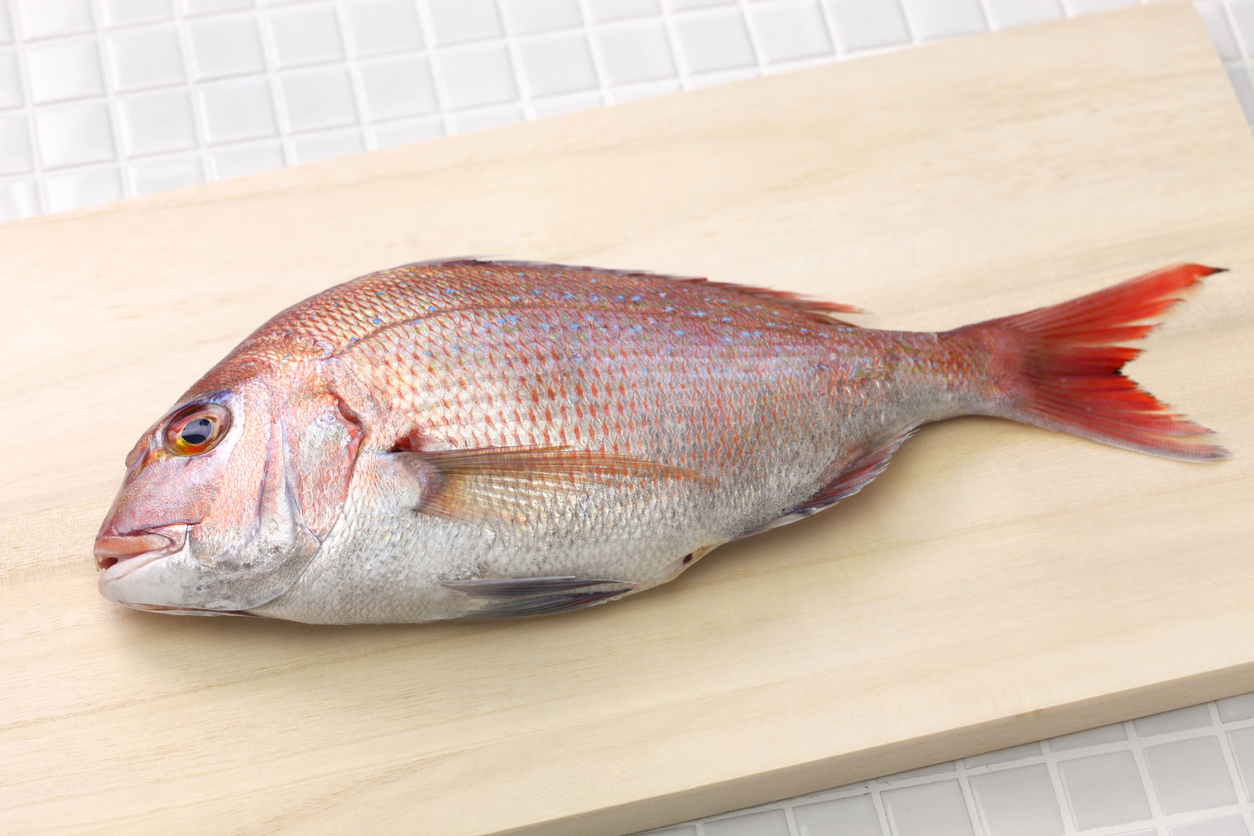
MHLW Japan Close to Commercial Approval of the First Genome-edited Fish
August 25, 2021| |
Japan's Ministry of Health, Labor and Welfare (MHLW) is expected to approve the genome-edited red snapper (tai in Japanese) in September, allowing it to be distributed and sold commercially. Once approved, it will be the first genome-edited fish in the country. Japan has approved genome-edited GABA-rich tomato in March 2021.
Kyoto University, Kinki University, and other organizations have been working together to develop the genome-edited red snapper. The fish's flesh is enlarged by disabling myostatin, a protein that suppresses muscle growth. By simply feeding the fish with the same amount of food, the flesh of the fish increases about 1.5 times. This is expected to lead to cost reduction in red snapper production.
The genome-edited ones will be individually identified with tags and grown in aquaculture tanks on land, so they will not escape to the sea and crossbreed with natural ones. A panel of experts from MHLW will check to examine if there are any external genes that red snapper does not naturally possess, or if any new allergens have been created. If there are no problems, the application will be accepted. The actual date of sale in the market is yet to be determined.
The original news article in Japanese was published in Yomiuri Shimbun.
| |
You might also like:
- Japan Launches World's First Genome-Edited Tomato
- Japanese Health Ministry Finalizes Policy on Genome-Edited Food Products
- Japan Updates Genome Editing Handling Procedures for Feed and Feed Additives
Biotech Updates is a weekly newsletter of ISAAA, a not-for-profit organization. It is distributed for free to over 22,000 subscribers worldwide to inform them about the key developments in biosciences, especially in biotechnology. Your support will help us in our mission to feed the world with knowledge. You can help by donating as little as $10.
-
See more articles:
-
News from Around the World
- The Impact of Gene Technology in Animal Agriculture and Food Production
- Texas A&M Researchers Engineer Good Bacteria to Aid in Combating Disease
- Technology Developers Share Commercialization Experiences with Filipino Scientists
- NTU Researchers Identify How Xanthomonas Bacteria Infect Plants
- India Eases Rules for Import of GM Soya Cake, Benefits Farmers
- European Commission Authorizes 10 GM Crops for Food and Feed
- UK Report Compares EU Approaches on Food Safety Regulation of Novel Foods and GMOs with Other Countries
-
Research Highlights
- Plant Immune Sensors Found to Navigate Against Invading Microbes Inside Plant Cells
-
Plant
- MHLW Japan Close to Commercial Approval of the First Genome-edited Fish
- Coalition of NGOs Outline Principles for Responsible Governance of Gene Editing
- Study Finds CRISPR Could Render Mosquitoes Infertile, Reducing Spread of Diseases
- High-oleic Tobacco Seed Oil for Bio-diesel Produced Using CRISPR-Cas9
-
Read the latest: - Biotech Updates (January 21, 2026)
- Gene Editing Supplement (January 28, 2026)
- Gene Drive Supplement (February 22, 2023)
-
Subscribe to BU: - Share
- Tweet

